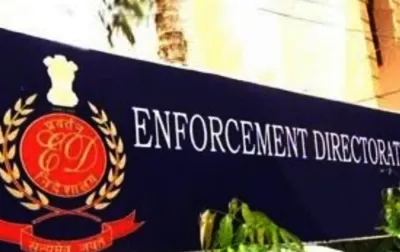What Led to the ED Raiding 37 Locations in Delhi and Seizing 322 Bank Passbooks?

Synopsis
Key Takeaways
- ED raids highlight corruption in classroom construction.
- 322 bank passbooks linked to mule accounts were seized.
- Investigation based on an FIR from the ACB.
- Allegations involve financial misappropriation of over Rs 2,000 crore.
- Key figures include Manish Sisodia and Satyendar Jain.
New Delhi, June 20 (NationPress) The Enforcement Directorate (ED), operating from the Delhi Zonal Office, executed search operations at 37 locations throughout the national capital. This action was taken under the guidelines of the Prevention of Money Laundering Act (PMLA), 2002 in connection with the Delhi classroom construction irregularities case. During these operations, a significant amount of digital evidence and 322 bank passbooks linked to mule accounts, allegedly opened in the names of laborers for the purpose of diverting government funds, were recovered.
An ED press statement released on Friday detailed, "Original departmental files from the Government of National Capital Territory of Delhi (GNCTD), rubber stamps from officials of the Public Works Department (PWD), and various incriminating documents, including fake invoices submitted to GNCTD departments showcasing inflated or bogus claims, were also seized during the searches."
Importantly, this investigation was initiated following a First Information Report (FIR) filed by the Anti-Corruption Branch (ACB) on April 30, which alleged irregularities in the construction of 12,748 classrooms or semi-permanent structures in government schools.
On the same date, the ACB registered an FIR against senior Aam Aadmi Party (AAP) ministers, including Manish Sisodia (the then Education Minister) and Satyendar Jain (the then Public Works Department minister), for alleged corruption in classroom construction.
This FIR pertains to financial misappropriation exceeding Rs 2,000 crore in the construction of around 12,748 additional classrooms by the PWD from 2015 to 2023.
Notably, Manish Sisodia was questioned for nearly three hours by the ACB on Friday regarding the same case, leaving the office at approximately 2:40 P.M. after arriving at noon.
While the former education minister accused the ruling Bharatiya Janata Party (BJP) of misusing investigative agencies for political gain, the ACB asserted that the scam involved inflated costs associated with the construction of classrooms and school facilities under the Delhi government.









